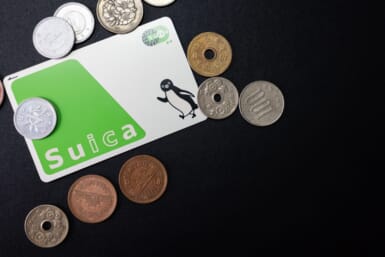One of my all-time favorite cartoons was drawn by the late author, poet, songwriter and comic artist Shel Silverstein. Lined in his classically simple pen-and-ink style, “The Bank Robber” is a 16-panel off-the-wall representation of commitment and perseverance.
The Bank Robber is first shown as a scruffy young man furtively “casing” the object of his larcenous intentions—the Exchange National Bank. The Bank Robber studies people going in and out of the front door, he casts sidelong glances at the night deposit vault, and he paces back and forth deep in thought on the sidewalk outside the establishment.
After reviewing his notes in his crummy little room, The Bank Robber comes up with a Plan. (Oh, boy. Plans are important, folks.) The Bank Robber enlists an Equally Seedy Character and, over a bottle of rotgut, the two agree to become partners.
The next day, after carefully shaving, combing his hair and donning a suit, The Bank Robber is driven to the financial institution by the Equally Seedy Character. The E.S.C. waits in the car outside while The Bank Robber enters, is interviewed by a personnel manager and is hired to sweep the floors.
Time goes by. Eventually the by-now much older personnel manager brings in The Bank Robber and makes him a security guard. Then, in the flick of an eye—can’t be more than a year or two—The Bank Robber is promoted to the job of office boy.
The Bank Robber’s career path becomes clear. As a teller he sits behind the front counter. As assistant treasurer he gets a desk of his own. The original personnel manager is long gone, and it’s now a rather spiffy young woman who congratulates him on bearound coming the treasurer and then later vice president.
As president, The Bank Robber’s desk is huge. The by-now matronly personnel manager and a flock of remarkable young employees stand around offering toasts on the happy occasion. The Bank Robber permits a smile to crease across his wrinkled face.
After everyone leaves, The Bank Robber rises and, with the assistance of a cane, totters to the main vault. He opens it. Inside are piles of money. He fills a huge bag with cash and, Santa Claus fashion, shoulders the bag. He furtively walks out the front door to where the Equally Seedy Character is still waiting in a rust-bucket, barely recognizable as the get-away car.
The two men drive away into the night—cackling, chortling and tossing their hats in the air. Mission accomplished. Commitment and Perseverance!
Now, I don’t know about you, but that story gives me a warm feeling. I don’t mean the part about taking money from a bank. Some of my best friends are…well, not my best friends, exactly, but somebody’s best friends, are bankers, and I wouldn’t want them to suffer unnecessary angst because all their numbers don’t add up.
My warm feeling is instead caused by the illustration that commitment and perseverance can conquer all. And that brings me to the second part of this column—The Statesman.
Imagine, if you will, somewhere/sometime in Japan a young man decided to become a Statesman. He hung around the Diet building, watched the posturing of politicians and finally came up with a Plan. (Plans are important, folks.)
The Statesman joined the LDP, ran as a ward representative, wore fluffy white gloves, blasted eardrums with his loud-speaker van and took his seat on the back bench.
Eventually making it to the Diet The Statesman served on the committees, passed pieces of paper back and forth and agreed to be photographed sitting in those armchairs with the atrocious seatcovers. After years of joining and leaving factions and splinter groups, attending weddings and funerals and pretending to be awake during policy debates, The Statesman approaches the Leadership Level (determined solely by chronology).
After all those years of following the Plan, The Statesman is now at the moment of truth. Seniors, most co-workers (and even the personnel manager) have fallen to the side. All dues have been paid. He can now shed the skin of a garden-variety politician.
The prize for The Statesman is not a bank vault, it is, instead, the treasure of being free to lead with integrity and intelligence unrestricted by the burdens of past relationships and compromises grinding down like so many millstones. “Japan can say yes. And Japan can say no. Here’s why.”
We just had elections. Has our Statesman been elected? Is he the one with the commitment and perseverance—no matter how short the term—of The Bank Robber? Someone with a Plan?
OK, maybe next time.









